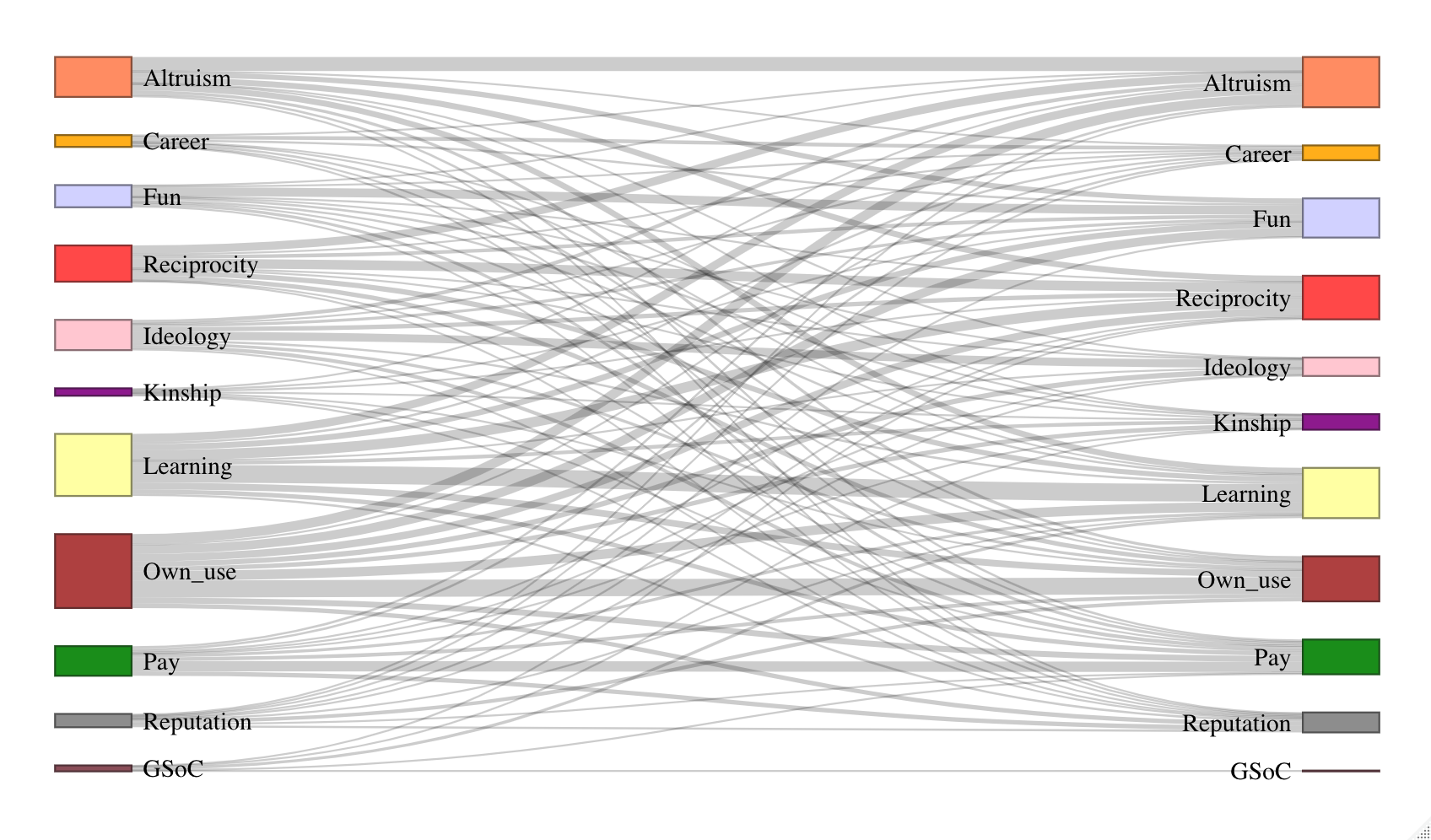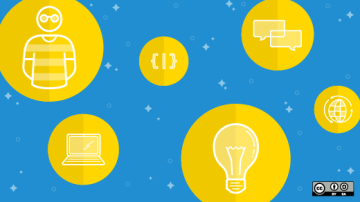The reasons people contribute to free and open source (FOSS) projects has been a topic of much interest. However, the research on this topic dates back 10 or more years, and much has changed in the world since then. This article shares seven insights from a recent research study that revisited old motivation studies and asked open source contributors what motivates them today.
These insights can be used by open source community managers who want to grow a community, organizations that want to understand how community members behave, or anyone working with others in open source. Understanding what motivates today's contributors helps us make impactful decisions.
A brief history of open source motivation research
We need to look into the origins of open source and the free software movement to understand why studying what motivates contributors is so fascinating. When the free software movement started, it was in defiance of corporations using copyright and license terms to restrict user and developer freedoms. The free software movement is a story of rebellion. It was difficult for many to understand how high-quality software emerged from a movement of people who "scratched their own itch" or "volunteered" their skills. At the core of the free software movement was a collaborative way for creating software that became interesting to companies as well. The emergence of open source was a philosophical shift to make this collaboration method available and acceptable to businesses.
The state of the art of research into motivation in open source is a publication from 2012 that summarizes research studies from more than a decade prior. Gordon Haff reviewed this topic in Why do we contribute to open source software? and Ruth Suehle in Drive and motivation: Daniel Pink webcast recap.
Over the last 10 years, much has changed in open source. With corporations' increasing interest in open source and having paid employees working on open source projects, it was high time to revisit motivation in open source.
Contributors' changing motivations
In our scientific study, The shifting sands of motivation: Revisiting what drives contributors in open source, we investigated why people join FOSS projects and why they continue contributing. One of our goals was to study how contributors' motivations have changed since the 2000s. A second goal was to take the research to the next level and investigate how people's motivations change as they continue contributing. The research is based on a questionnaire answered by almost 300 FOSS contributors in late 2020.
Seven key findings
Some of the study's results include:
-
Intrinsic motivations play a key role. The large majority of people contribute to FOSS because of fun (91%), altruism (85%), and kinship (80%). Moreover, when analyzing differences in motivations to join and continue, the study found that ideology, own-use, or education-related programs can be an impetus to join FOSS, but individuals continue for intrinsic reasons (fun, altruism, reputation, and kinship).
-
Reputation and career motivate more than payment. Many contributors seek reputation (68%) and career (67%), while payment was referenced by less than 30% of the participants. Compared to earlier studies, reputation is now considered more important.
-
Social aspects have gained considerable importance since the 2000s. Enjoying helping others (89%) and kinship (80%) rose in the rankings compared to surveys from the early 2000s.
-
Motivation changes as people gain tenure. A clear outcome of the paper is that current contributors often have a different motivation from what led them to join. Of the 281 respondents, 155 (55%) did not report the same motivation for joining and continuing to contribute.
The figure below shows individuals' shifts in motivation from when they joined to what leads them to keep contributing. The size of the boxes on the left represents the number of contributors with that motivation to start contributing to FOSS, and on the right, the motivation to continue contributing. The width of the connections is proportional to the number of contributors who shifted from one motivation to the other.
(Source: Gerosa, et al.)
-
Scratching one's own itch is a doorway. Own-use ("scratch own itch") has decreased in importance since the early days. The contributors who joined FOSS for own-use-related reasons often shifted to altruism, learning, fun, and reciprocity. You can see this in the figure above.
-
Experience and age explain different motivations. Experienced developers have higher rates of reporting altruism (5.6x), pay (5.2x), and ideology (4.6x) than novices, who report career (10x), learning (5.5x), and fun (2.5x) as greater motivations to contribute. Looking at individual shifts in motivation, there was a considerable increase (120%) in altruism for experienced respondents and a slight decrease (-16%) for novices. A few young respondents joined FOSS because of career, but many of them shifted towards altruism (100% increase).
-
Coders and non-coders report different motivations. The odds of a coder reporting fun is 4x higher than non-coders, who are more likely (2.5x) to report ideology as a motivator.
Motivating contributors based on their contributor journey
Knowing how new and long-time contributors differ in motivation helps us discover how to support them better.
For example, to attract and retain new contributors, who might become the future workforce, projects could invest in promoting career, fun, kinship, and learning, which are particularly relevant for young contributors.
Because over time altruism becomes more important to contributors, FOSS projects aiming to retain experienced contributors, who tend to be core members or maintainers, could invest in strategies and tools showing how their work benefits the community and society (altruism) and improve social interactions.
Also in response to the increased rank of altruism, hosting platforms could offer social features to pair those needing help with those willing to help, highlight when a contributor helps someone, and make it easier to show appreciation to others (similar to stars given to projects).
These are some of our ideas after reviewing the study's findings. We hope that sharing our insights helps others with different backgrounds and experiences come up with more ideas for using this data to motivate new and seasoned contributors. Please share your ideas in the comments below.
The research paper's authors are Marco A. Gerosa (Northern Arizona University), Igor Wiese (Universidade Tecnologica Federal do Paraná), Bianca Trinkenreich (Northern Arizona University), Georg Link (Bitergia), Gregorio Robles (Universidad Rey Juan Carlos), Christoph Treude (University of Adelaide), Igor Steinmacher (Universidade Tecnologica Federal do Paraná), and Anita Sarma (Oregon State University). The full study report is available, as well as the anonymized data and artifacts related to the research.















Comments are closed.